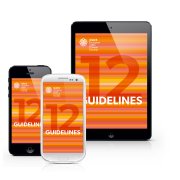COVID-19 drug interactions app now available
The University of Liverpool has launched a mobile app version of its COVID-19 Drug Interactions checker to aid the safe prescribing of experimental drugs being used against COVID-19.
The COVID-19 iChart app, freely available on iOS and Android devices, allows users to check for interactions straight from their smartphone or tablet and with added offline capability, allows for interactions to be searched when internet access is limited.
The COVID-19 drug interactions checker was created by the University’s Liverpool Drug Interactions Group with input from colleagues at University Hospital Basel and Radboud University, Nijmegen. The checker provides vital information on whether the combination of an experimental drug and co-medications are safe to prescribe. This is of particular importance when treating elderly patients and those with underlying health problems, who are most at risk from COVID-19 and are likely to be receiving multiple other drugs.
Introducing a COVID-19 experimental therapy to a patient could raise the concentration of a co-medication to dangerous levels, or, alternatively, lower it to the point where it is no longer effective. Some of the repurposed drugs are known to cause heart rhythm disturbances, which is a particular concern.
The COVID-19 drug interactions checker website initially launched in March 2020, has been visited by more than 270,000 users from 218 countries and territories, searching for over 508,000 interactions. The website has also been recommended in national and international treatment guidelines.
Professor Saye Khoo, Clinical Lead of the Liverpool Drug Interactions Group: “We continue to respond as the COVID-19 situation develops and the launch of the COVID-19 iChart app makes it even easier for users to have this vital information readily available. We are grateful for support from the Centre of Excellence in Infectious Diseases Research (CEIDR), the National Institute for Health Research (NIHR),UK Research and Innovation (UKRI), and colleagues at AbbVie, Gilead, MSD, Novartis, Sobi, BHIVA and EACS.”
Notes to editors
About NIHR and UKRI:
The National Institute for Health Research (NIHR) is the nation's largest funder of health and care research. The NIHR:
- Funds, supports and delivers high quality research that benefits the NHS, public health and social care
- Engages and involves patients, carers and the public in order to improve the reach, quality and impact of research
- Attracts, trains and supports the best researchers to tackle the complex health and care challenges of the future
- Invests in world-class infrastructure and a skilled delivery workforce to translate discoveries into improved treatments and services
- Partners with other public funders, charities and industry to maximise the value of research to patients and the economy
The NIHR was established in 2006 to improve the health and wealth of the nation through research, and is funded by the Department of Health and Social Care. In addition to its national role, the NIHR supports applied health research for the direct and primary benefit of people in low- and middle-income countries, using UK aid from the UK government.
UK Research and Innovation
UK Research and Innovation (UKRI) is the largest public funder of research and innovation in the UK, with a budget of around £8bn. It is composed of seven disciplinary research councils, Innovate UK and Research England.
We operate across the whole country and work with our many partners in higher education, research organisations businesses, government, and charities.
Our vision is for an outstanding research and innovation system in the UK that gives everyone the opportunity to contribute and to benefit, enriching lives locally, nationally and internationally.
Our mission is to convene, catalyse and invest in close collaboration with others to build a thriving, inclusive research and innovation system that connects discovery to prosperity and public good.
www.ukri.org

20th European AIDS Conference
15-18 October 2025 Paris, France

EACS Guidelines updated
The EACS 12.1 and the app are available for free on


Educational Programme
Training and educating the next generation of clinicians and researchers is an EACS core activity.

EACS Resource Library
Access all scientific content of EACS core activities! (members only)

Interim Guidance
Interim Guidance on the Use of Statin Therapy for the Primary Prevention of Cardiovascular Disease in People with HIV